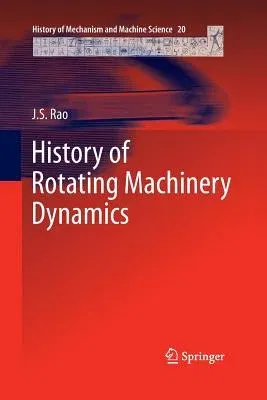J S Rao
(Author)History of Rotating Machinery Dynamics (2011)Paperback - 2011, 21 November 2014

Qty
1
Turbo
Ships in 2 - 3 days
In Stock
Free Delivery
Cash on Delivery
15 Days
Free Returns
Secure Checkout

Part of Series
History of Mechanism and Machine Science
Print Length
358 pages
Language
English
Publisher
Springer
Date Published
21 Nov 2014
ISBN-10
9400735332
ISBN-13
9789400735330
Description
Product Details
Author:
Book Edition:
2011
Book Format:
Paperback
Country of Origin:
NL
Date Published:
21 November 2014
Dimensions:
23.39 x
15.6 x
1.98 cm
ISBN-10:
9400735332
ISBN-13:
9789400735330
Language:
English
Location:
Dordrecht
Pages:
358
Publisher:
Weight:
530.7 gm